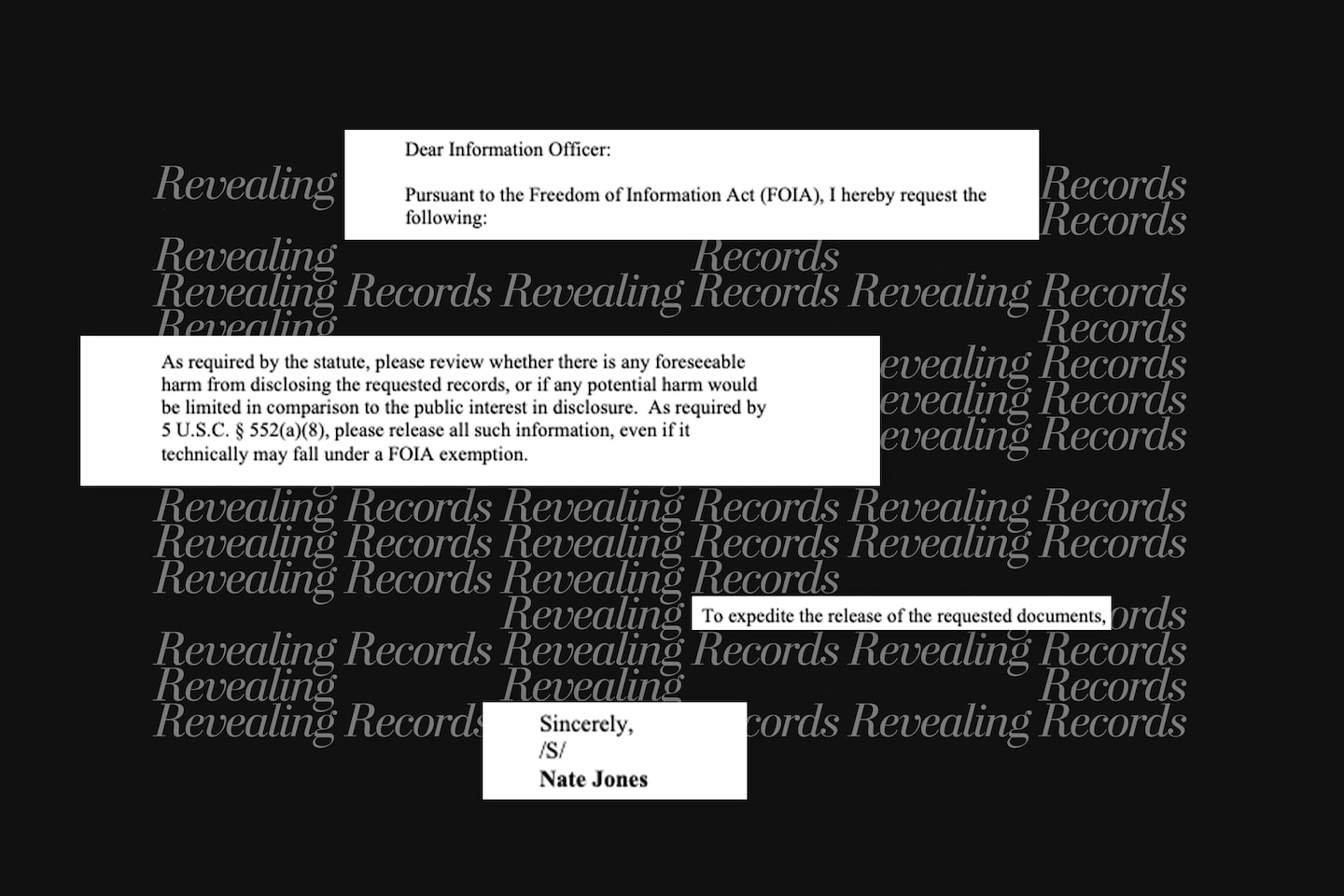The Washington Post today announces the first installment of “Revealing Records,” a new column anchored by Freedom of Information Act (FOIA) Director Nate Jones. The first-of-its kind column from the investigations desk takes readers behind the scenes in unearthing public records, exposing the countless secrets hidden in government documents, and highlights how the records inform Post reporting.
“The Post’s award-winning investigations are strengthened by Nate’s critical work obtaining local, state and federal records to help our reporters tell better stories,” said Sarah Childress, deputy editor for long-term investigations. “We are thrilled to offer this entertaining and educational window into the work we do every day to scrutinize power and empower people.”
FOIA is a law requiring federal agencies to release records to the public upon request — unless the records are exempt for privacy, national security or other reasons. Each state also has its own version of the federal law applicable to state and local governments. When agencies fail to produce records that are not subject to valid exemptions, the laws allow those making the requests to sue.
Beginning in 2020, Jones’s requests were the subject of a legal battle with the U.S. armed forces and the State Department in which The Post sued to obtain records on military personnel seeking foreign jobs. More than 4,000 pages of documents, including case files for about 450 retired soldiers, sailors, airmen and Marines were subsequently released to The Post, leading Jones and investigative reporter Craig Whitlock to publish an award-winning investigative series revealing retired U.S. veterans secured lucrative foreign jobs as civilian contractors for Saudi Arabia, the United Arab Emirates and other Persian Gulf monarchies.
In his first installment of “Revealing Records,” Jones prefaces his process, writing, “Generally, The Post only sues when we believe we can make a strong case. When we do prevail, the agencies often have to pay our attorneys’ fees. That is a cherry on top of any records the agencies are ordered to produce. We’ve been pretty successful at that, which I’ll tell you about in a future column.”


